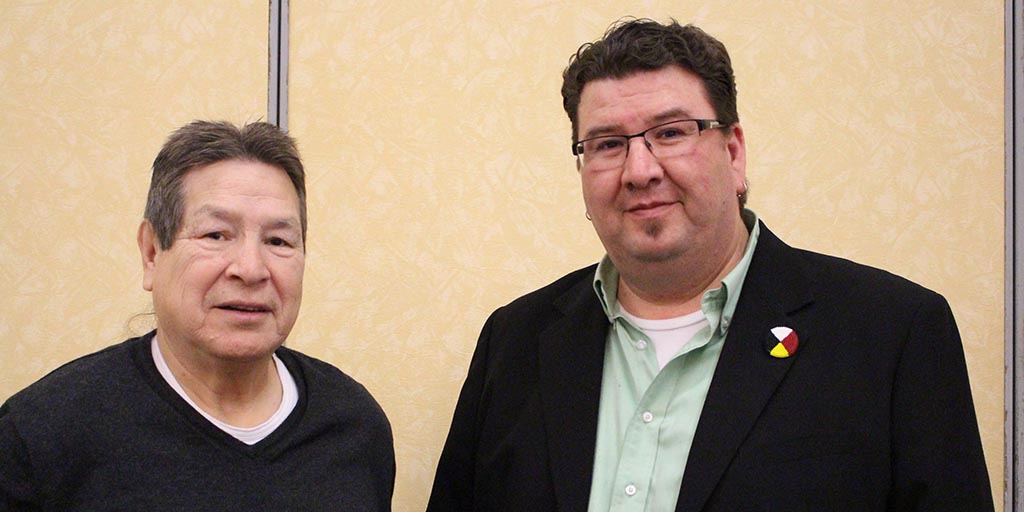The Association of Iroquois and Allied Indians (AIAI) held a symposium with environmental experts on March 21 and 22, in an effort to bring more awareness and address concerns the First Nations community has in terms of the environment.
According to a March 14 AIAI media release, the event would cover a variety of environmental topics and their impacts on the indigenous people.
The conference included a variety of talks in the province and beyond from the Ministry of the Environment and Climate Change (MOECC) and the Saugeen Ojibway Nation (SON) to name a few. The latter spoke about nuclear waste.
Other topics included the Climate Change Action Plan, Cap and Trade and Ontario’s Adaption Strategy and Action Plan from the MOECC, Indigenous Relations Branch.
Natasha George, a Policy Advisor at AIAI and co-ordinator of the idea of conference came to be when MOECC reached out and made the first initiative to “engage” with the First Nations community.
George said she thought the conference was important to have due to the lack of information of both the government and the First Nations communities when it comes to the environment.
“There are a lot of unanswered questions as you can see, as you can hear, it’s very vague in details and about participation with First Nations and also there’s more encompassing environmental issues that should be addressed as well. Overall I think it’s okay,” George said.
According to George, the conference plays an important factor when talking about environmental issues as a whole.
“First of all I think environmental issues should be a priority for everybody in Canada and around the world. Specifically for First Nations it’s important because First Nations are faced with different social circumstances, financial circumstances, locational circumstances and as such they are more prone to facing the hardships of environmental impact so I think it’s very, very important for First Nations to address these things.”
Mark Dunn, manager of the Indigenous Relations Branch at MOECC said the purpose of the conference was another way in which the provincial government, within the Climate Change Action Plan is trying to “ensure that First Nations communities across the province are engaged in the strategy that we’re developing,” Dunn said.
According to Dunn, the MOECC has “actively” gone out to the political territorial organizations in the province, since they represent a number of communities, and organized information sessions with them.
“The first step is a big project, a lot of detail with cap and trade and the action plans so we wanted to have some general overview sessions from this we’re hoping that we will be able to further engage on details relating to it, whether it be the offsets or any of the aspects under the action plan.
“Certainly the main importance is our climate change agenda absolutely, but [also] making sure that we are having First Nations community members involved in the discussion of climate change,” Dunn said.
Gordon Peters, Grand Chief of AIAI, from the Delaware Nation said that although he would have liked to see more members from the First Nations community, he thought the conference was good and collaborative with the Q&A portion of the speeches.
“I’m really happy about the questions that people are asking. I didn’t know what the response was going to be from people because this stuff can be really dry, but I think they’ve found the practical aspect of it for them and how it impacts their communities and that’s what it’s intended to do, it’s to help us to be able to do that,” Peters said.
According to Peters, the general purpose of the conference is to try and get the First Nations communities “more hands on, more ready to deal with this stuff” stating that the biggest bit of feedback also has to do with cost of living and essentials such as gas and diesel.
“That cost factor was the first indicator to us that we had to put out something like this so we could show a bigger picture of what goes on,” Peters said.
Peters also mentioned how everyday experiences and examples of environmental impacts to the communities, such as droughts, is another way of showing others that things, such as climate chance, are affecting First Nations people.
Geoff Stonefish, office manager of AIAI said he thinks the conference is “really” informative and agrees with a fellow conference participant that there was a lot of information sharing going on during the sessions, but thinks there needs to be another meeting at some point to discuss more detailed parts of what MOECC spoke about, including offsetting credits, since he thinks there’s opportunity for the First Nation communities to take advantage of and benefit from it.
Stonefish agreed that the conference is a way for participants to bring the material they learned back to their communities.
“I think the environment piece is really important to the First Nations communities, and I think part of the MOECC’s presentation kind of summed it up when they said that First Nations contribute the least to climate change, but are impacted the most and I think that statement is really true. As First Nations our culture and our heritage we’re really connected to the Earth and as the Grand Chief said in his opening comments that it’s a responsibility, we see it as a response rather than an obligation. It’s a responsibility for us to look after the Earth for the future,” Stonefish said.
*This a copy of the article, click on link below to go to Interrobang website
http://www.fsu.ca/interrobang.php?storyID=13296

